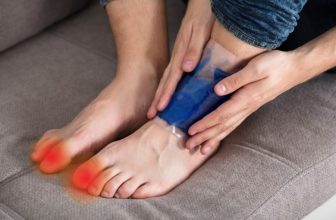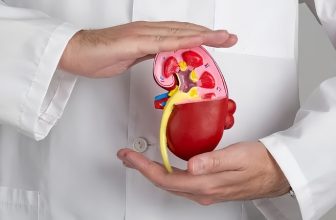Managing kidney disease with Chronic Kidney Disease Solution CKD.
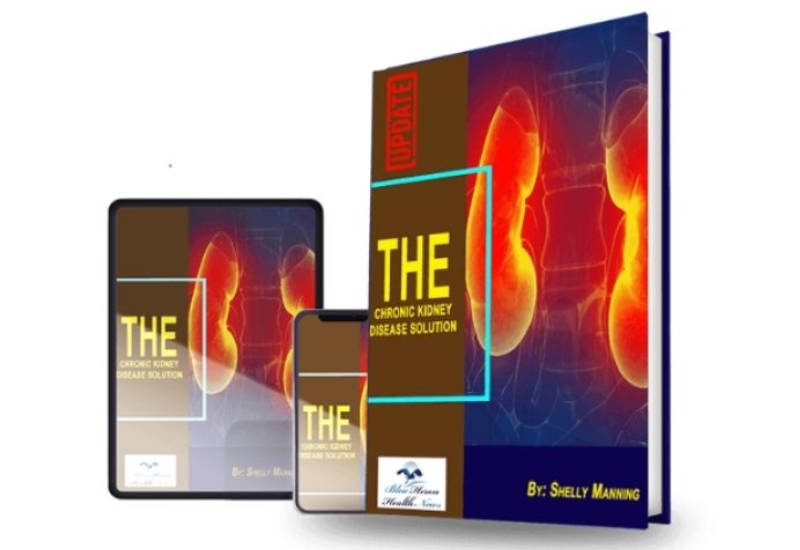
Introduction
Chronic Kidney Disease (CKD) is a progressive condition in which the kidneys lose their ability to filter waste and excess fluids from the blood. Over time, this can lead to a dangerous buildup of toxins in the body, causing serious health problems, including kidney failure. However, with early detection and appropriate management, the progression of CKD can often be slowed, and in some cases, reversed. This article will explore the Chronic Kidney Disease Solution (CKD), examining the causes, symptoms, diagnostic methods, lifestyle changes, and potential healing pathways that can help individuals manage CKD effectively.
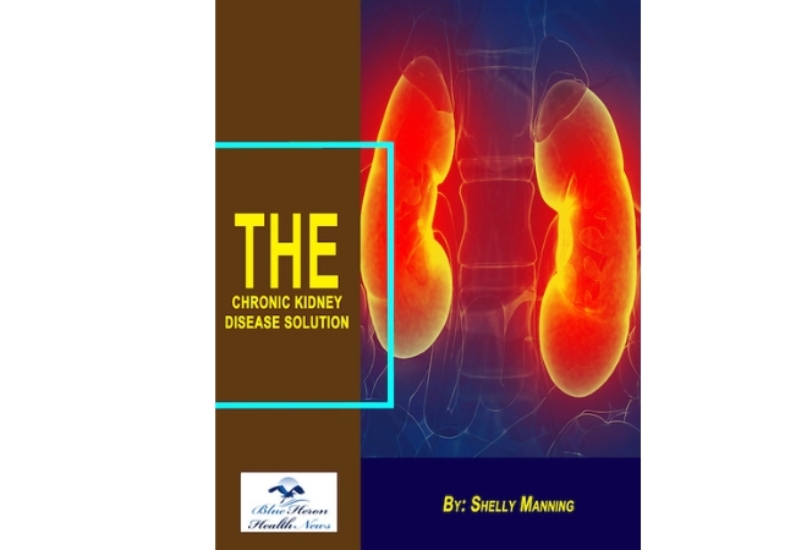
Understanding Chronic Kidney Disease (CKD)
Chronic Kidney Disease is a long-term condition characterized by gradual damage to the kidneys. This disease often progresses unnoticed in its early stages, as kidney function deteriorates slowly. The kidneys play a crucial role in filtering waste products from the blood, regulating blood pressure, balancing electrolytes, and maintaining overall bodily functions. As kidney function declines, these essential processes are impaired, leading to a variety of health complications.
Causes of CKD The primary causes of CKD are often linked to other health conditions, particularly diabetes and high blood pressure (hypertension). Both of these conditions can damage the blood vessels in the kidneys, impairing their ability to filter waste effectively. However, there are several other causes of CKD, including:
- Diabetes: High blood sugar can damage the kidneys over time, a condition known as diabetic nephropathy.
- Hypertension: High blood pressure can strain the blood vessels in the kidneys, leading to kidney damage.
- Genetic disorders: Conditions such as polycystic kidney disease (PKD) can result in cysts that disrupt kidney function.
- Autoimmune diseases: Diseases like lupus can cause the immune system to attack the kidneys, leading to inflammation and damage.
- Kidney infections: Recurrent or untreated urinary tract infections (UTIs) can cause long-term kidney damage.
- Medications and toxins: Prolonged use of medications such as nonsteroidal anti-inflammatory drugs (NSAIDs) or exposure to harmful toxins can also harm kidney function.
Risk Factors for CKD Several factors increase the likelihood of developing CKD. These include:
- Age: The risk of CKD increases with age, particularly after the age of 60.
- Family history: A family history of kidney disease increases the likelihood of developing CKD.
- Lifestyle factors: Smoking, obesity, and lack of physical activity are major risk factors that contribute to kidney disease.
Symptoms of CKD
Early stages of CKD often show no symptoms, making it difficult for individuals to recognize the disease until it has significantly progressed. However, as the disease advances, the following symptoms may occur:
- Fatigue: A general feeling of tiredness or weakness, due to the buildup of toxins in the body.
- Swelling: Fluid retention may cause swelling in the legs, ankles, feet, or face.
- Frequent urination: Particularly at night, individuals may notice an increased need to urinate.
- Changes in urine appearance: Urine may become foamy or darker, indicating the presence of proteins or blood.
- Shortness of breath: Fluid buildup in the lungs can lead to difficulty breathing.
- High blood pressure: The kidneys’ inability to regulate blood pressure can result in hypertension.
- Nausea and vomiting: These symptoms may be signs of advanced kidney failure when waste products accumulate in the blood.
Diagnosing CKD
The diagnosis of CKD typically involves several steps, including a combination of medical history, physical examination, blood tests, urine tests, and imaging studies. The most common diagnostic tests include:
- Blood tests: The glomerular filtration rate (GFR) is measured through blood tests to assess how well the kidneys are filtering waste.
- Urine tests: Tests like the urine albumin-to-creatinine ratio help detect protein or blood in the urine, which are indicators of kidney damage.
- Imaging tests: Ultrasounds or CT scans may be used to examine the size and structure of the kidneys.
- Kidney biopsy: In some cases, a biopsy may be performed to determine the underlying cause of kidney damage.
Managing CKD: The Chronic Kidney Disease Solution (CKD)

Managing CKD effectively involves a combination of lifestyle changes, medical treatments, and sometimes, surgical interventions. The goal is to slow or halt the progression of kidney damage and manage symptoms to improve quality of life. The CKD Solution emphasizes a comprehensive approach to treating and managing the disease, which includes both conventional medical treatments and complementary lifestyle changes.
Lifestyle Changes for Managing CKD Making certain lifestyle modifications is a critical part of managing CKD. These changes can help improve kidney function, prevent further damage, and enhance overall health. Key lifestyle changes include:
- Dietary Modifications: A healthy, kidney-friendly diet is essential for managing CKD. Patients are typically advised to limit the intake of sodium, potassium, and phosphorus. A diet low in protein can help reduce the strain on the kidneys. Foods rich in antioxidants, like fruits and vegetables, can help combat oxidative stress.
- Controlling Blood Pressure: High blood pressure is a major contributor to kidney damage. Managing blood pressure through diet, exercise, and medications is crucial for slowing the progression of CKD.
- Managing Blood Sugar: For individuals with diabetes, maintaining good blood sugar control is vital to prevent kidney damage. This can be achieved through diet, exercise, and medications, including insulin or oral hypoglycemic agents.
- Quitting Smoking: Smoking accelerates kidney damage by decreasing blood flow to the kidneys and increasing blood pressure. Quitting smoking is one of the most important steps to protect kidney health.
- Regular Exercise: Physical activity helps maintain a healthy weight, regulate blood pressure, and improve overall cardiovascular health. However, patients should consult their healthcare providers to determine an appropriate exercise plan tailored to their condition.
- Hydration: Proper hydration is essential for kidney function. While it is important not to overhydrate, drinking sufficient water helps kidneys flush out toxins more effectively.
The Three-Phase Approach to Reversing CKD
Shelly Manning’s program is structured into three phases, each designed to address different aspects of CKD and promote healing:
- Phase 1: Protect from Kidney DamageThe first phase focuses on stopping further damage to the kidneys. This involves making immediate changes to daily habits that contribute to kidney stress, such as reducing sodium intake, managing blood pressure, and addressing gut health. Simple dietary changes and stress management techniques are introduced to create a foundation for healing.
- Phase 2: Restore Kidney FunctionIn the second phase, the focus shifts to restoring kidney function. This involves stabilizing blood sugar levels, improving gut health, and incorporating specific foods and supplements that support kidney repair. Many individuals begin to notice improvements in energy levels, mental clarity, and overall well-being during this phase.
- Phase 3: Repair and Renew Kidney TissueThe final phase is about deep healing. By this stage, blood pressure and blood sugar levels are typically stabilized, and kidney function has improved. The focus is on repairing and renewing kidney tissue using natural supplements and nutrient-dense foods. This phase also emphasizes long-term lifestyle habits that ensure sustained health and prevent future kidney damage.
The Power of Natural Supplements
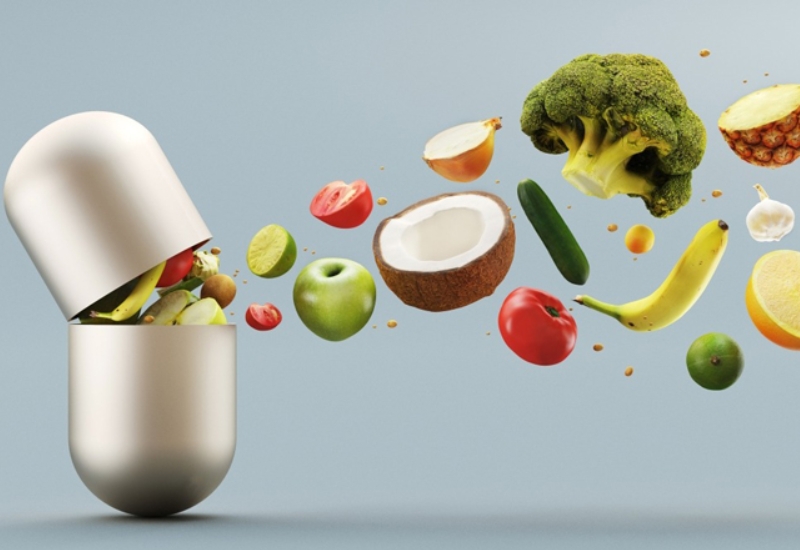
In addition to dietary changes, natural supplements can play a crucial role in supporting kidney health and overall well-being. Shelly Manning’s program recommends several affordable supplements that can be found at local health stores or supermarkets. These include:
- Probiotics: To support gut health and promote a balanced microbiome.
- Omega-3 Fatty Acids: Found in fish oil, omega-3s have powerful anti-inflammatory properties that can help reduce kidney inflammation.
- Vitamin D: Many individuals with CKD have low levels of vitamin D, which is essential for bone health and immune function.
- Herbal Remedies: Herbs such as turmeric, ginger, and dandelion root have been used for centuries to support kidney health and reduce inflammation.
The Emotional Impact of CKD
Living with CKD can take a significant emotional toll. The prospect of dialysis, the uncertainty of disease progression, and the impact on daily life can lead to anxiety, depression, and a sense of hopelessness. Addressing the emotional aspects of CKD is an important part of the healing process. Support groups, counseling, and stress-reducing activities such as yoga and meditation can help individuals cope with the emotional challenges of CKD.
Shelly Manning’s approach emphasizes the importance of mental and emotional well-being in the healing process. By taking control of one’s health through lifestyle changes and natural remedies, many individuals experience a renewed sense of hope and empowerment. This positive mindset can be a powerful tool in the journey toward better health.
Conclusion: A Path to Healing
Chronic kidney disease is a complex condition, but it is not a life sentence. While conventional treatments focus on managing symptoms and slowing disease progression, a holistic approach that addresses lifestyle factors, gut health, and emotional well-being can offer a path to true healing. Shelly Manning’s “The Chronic Kidney Disease Solution” provides a comprehensive, step-by-step guide for individuals looking to take control of their health and reverse the symptoms of CKD.

By making informed lifestyle choices, improving gut health, and incorporating natural supplements, individuals with CKD can protect their kidneys, restore function, and even repair damaged tissue. The journey to better health is not always easy, but with the right knowledge and support, it is entirely possible. Thousands have already taken this path and transformed their lives—and so can you.



